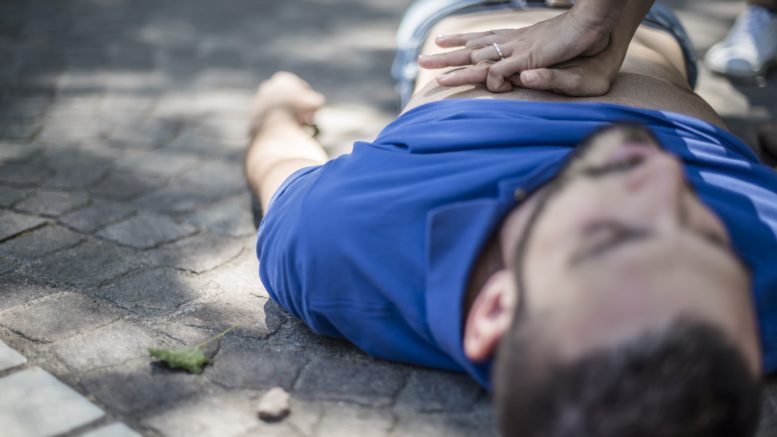Analysis of Seattle emergency medical services (EMS) and hospital data from January 1 to April 15, 2020, indicates bystander CPR is a lifesaving endeavor whose benefits outweigh the risks of COVID-19 infection, according to a new article published yesterday in the American Heart Association's flagship journal Circulation.
Resuscitation of patients in out-of-hospital cardiac arrest (OHCA) depends on rapid, coordinated efforts involving laypersons, telecommunicators, prehospital professionals and hospital providers. However, during the pandemic, experts have questioned whether chest compressions are a high-risk "aerosolizing" procedure that could increase the risk of COVID-19 infection, especially since bystander CPR is typically provided for only a few minutes.
In a research letter titled "Prevalence of COVID-19 in Out-of-Hospital Cardiac Arrest: Implications for Bystander CPR," University of Washington EMS physicians and researchers in Seattle and King County, Washington, analyzed EMS and hospital treatment data, and death certificates of all OHCAs to estimate the frequency of COVID-19 infection among the total out-of-hospital cardiac arrest population served.
From January 1 to April 15, EMS responded to 1,067 out-of-hospital cardiac arrests of which 478 were treated by EMS with CPR. During the active period of COVID-19 (February 26-April 15), EMS responded to 537 (50.3%) out-of-hospital cardiac arrests, of which 230 (48.1%) were EMS treated with CPR.
The researchers note, as of April 15:
- The community had 15 deaths per 100,000 population from COVID-19, higher than 42 other states at that time.
- COVID-19 was diagnosed in less than 10% of out-of-hospital cardiac arrests.
- Assuming the risk of transmission to bystanders performing hands-only CPR without PPE [personal protective equipment] is 10%, treating 100 patients could result in 1 bystander infection (10% with COVID-19 x 10% transmission).
- Given a 1% mortality for COVID-19, approximately 1 rescuer might die in 10,000 bystander CPR events.
- By comparison, bystander CPR saves more than 300 additional lives among 10,000 patients with out-of-hospital cardiac arrest.
"We believe the current findings support telecommunicators and bystanders maintaining the most efficient approach that prioritizes rapid identification of cardiac arrest and immediately proceeds to chest compressions and use of a defibrillator," the authors write. "Delaying bystander CPR to [put on personal protective equipment] should only be considered when the prevalence of COVID-19 infection is substantially increased."
Source: American Heart Association

Be the first to comment on "Analysis of Seattle EMS and Hospital Data Indicates Low COVID-19 Infection Risk From Bystander CPR"